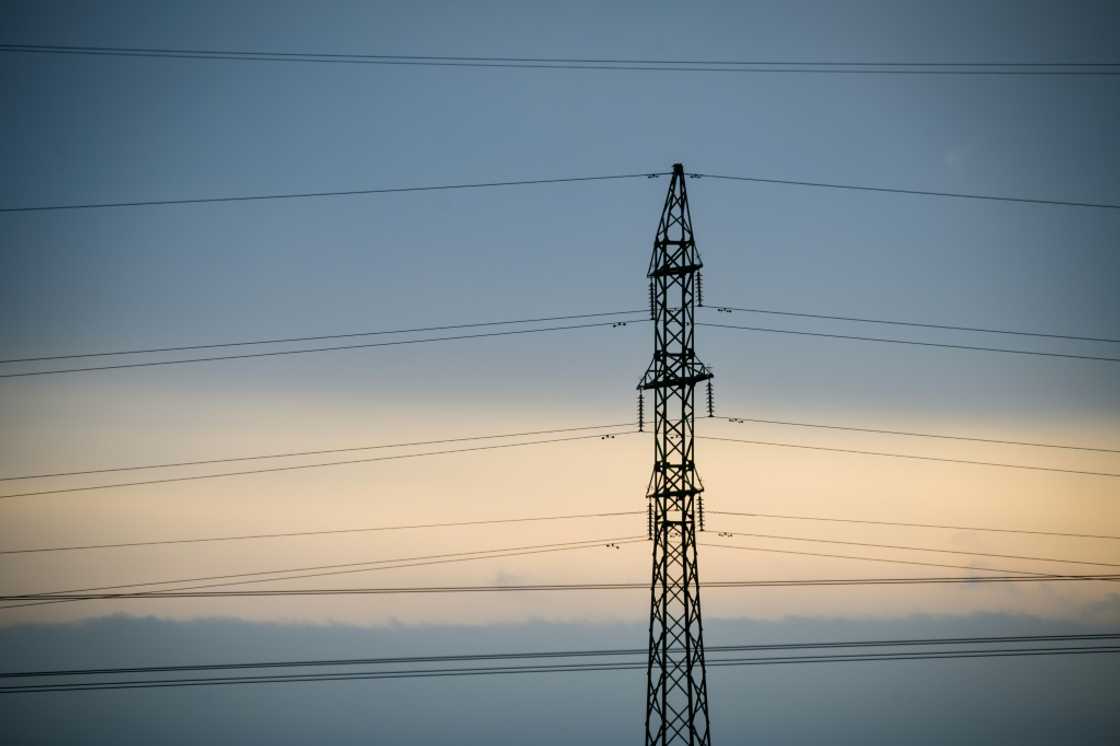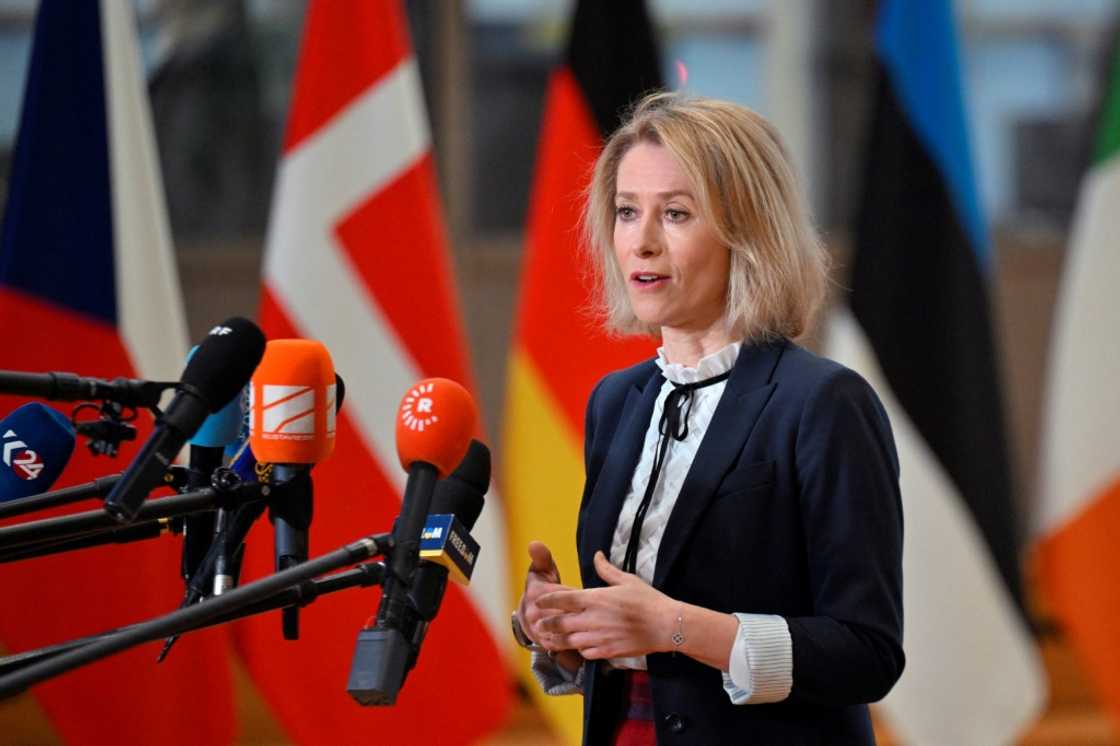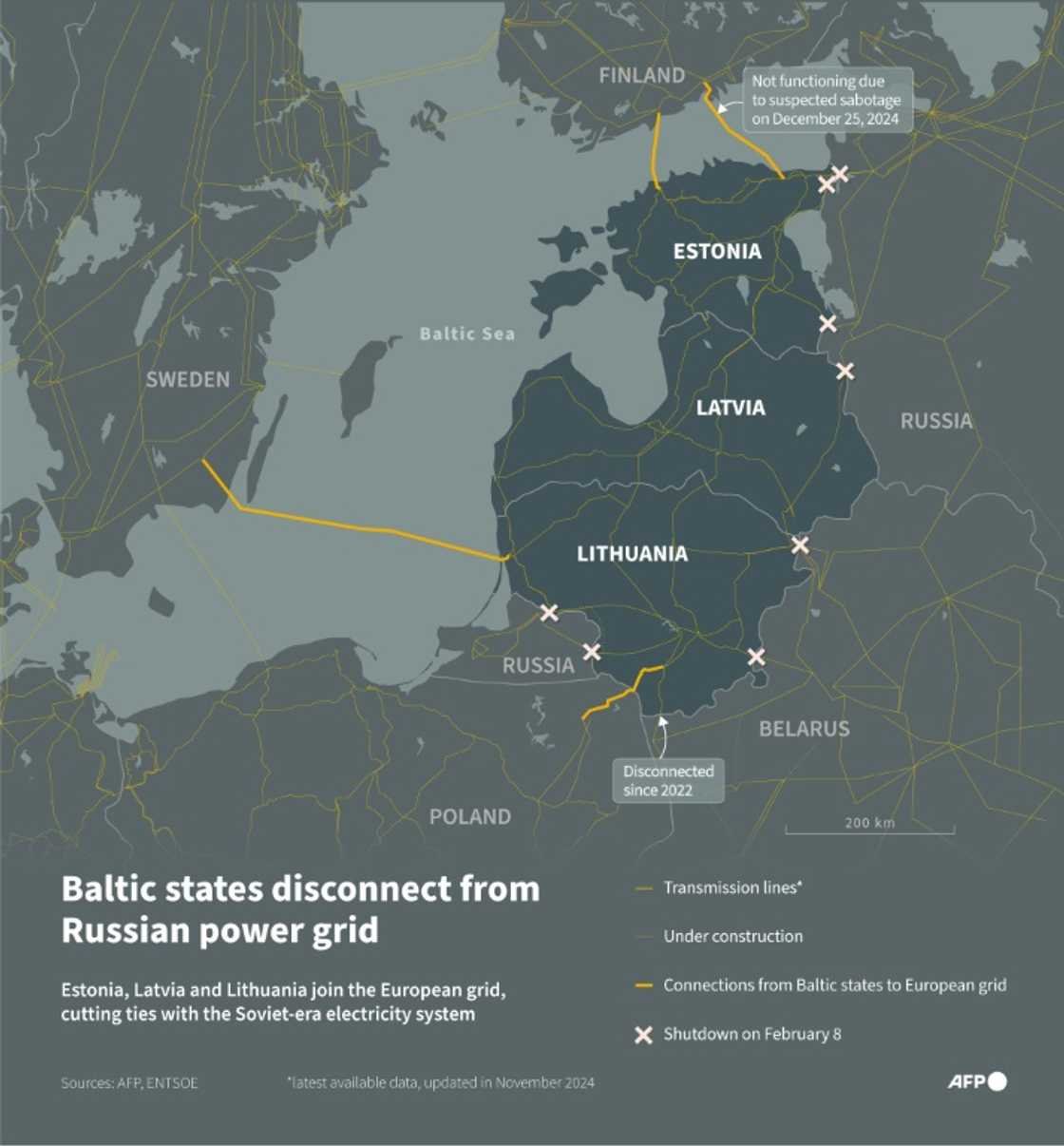
The countries in the Baltic region started disconnecting from Russia's energy network to start participating in the European grid, a development that has been in the works for years, but has gained more importance due to Russia's invasion of Ukraine on Saturday.
Estonia, Latvia, and Lithuania - all former Soviet republics currently part of the European Union and NATO - are leaving Russia's power grid in order to prevent Moscow from using it against them.
"We are stripping away Russia's leverage to use the electricity grid for coercive geopolitical purposes," Lithuania's Energy Minister Zygimantas Vaiciunas stated in an interview with AFP.
The EU foreign policy chief, Kaja Kallas, who is also Estonia's former prime minister, praised the move on X as "a triumph for freedom and the unity of Europe".
Lithuania was the first of the three Baltic countries to break away from the Moscow-controlled power grid, Lithuania's state-run electricity network operator Litgrid stated on Saturday.
"Lithuania's electricity exchange lines with Kaliningrad and Belarus were disconnected at 7:43 a.m. local time, 5:43 GMT," said Litgrid spokesperson Matas Noreika to AFP.
Estonia and Latvia were to follow suit by 0700 GMT, he also added.
Formal celebrations are planned throughout the Baltic region, despite some consumers being concerned about potential disruptions in supply, including possible cyber-attacks.
Latvia will physically cut a power line to Russia on Saturday, and European Commission President Ursula von der Leyen is scheduled to attend a ceremony in Vilnius on Sunday alongside Baltic leaders.
"Lithuania is prepared," Lithuanian Prime Minister Gintautas Paluckas stated on X, indicating that this weekend marks the start of a new era for our energy self-sufficiency.
The Baltic countries have been preparing for integration with the European grid for a considerable time but have encountered technological and financial hurdles.
The situation became increasingly pressing after the invasion of Ukraine by Russia in 2022, which made the Baltic states feel vulnerable and potentially threatened.
They ceased buying Russian gas and electricity following the invasion, yet their power grids continued to be linked to Russia and Belarus, under Moscow's control.
This left them reliant on Moscow for a stable electricity supply, which is essential for factories and facilities that need a constant power supply.
'Possible provocations'
Following the Baltic states' disconnection from the Russian energy grid, they will run on an independent power system, known as "isolated mode", for approximately 24 hours to verify their power frequency.
"We must conduct some tests to confirm to Europe that our energy system is stable," said Rokas Masiulis, head of Litgrid.
We'll alternate powering the power stations and observe the frequency variations, then evaluate our capacity to regulate it.
The states will then be connected to the European power grid through Poland.
Warning have been issued regarding potential hazards associated with the change.

"Several immediate dangers are conceivable, like tactical operations against vital infrastructure, cyber-attacks and disinformation campaigns," Lithuania's state security department told AFP.
Poland's power grid operator, PSE, announced that it will use helicopters and drones to patrol the connection with Lithuania.
Latvian President Edgars Rinkevics told LTV1 that the countries were "maximally ready" for the switch, but said they could not rule out possible provocations.
In Estonia, the police and volunteer defense corps will be responsible for securing critical electrical infrastructure until the following weekend due to the threat of sabotage.
Several underwater telecommunications and power cables have been intentionally cut off in the Baltic Sea within the past few months. There are claims from certain experts and politicians that Russia is conducting a hybrid form of warfare, a claim that Russia is refuting.
'People won't feel it'
A total of 1.6 billion euros (approximately $1.7 billion) - mainly sourced from EU funds - has been invested in this synchronization project across the Baltic states and Poland.
Lithuanian President Gitanas Nauseda was sure the transition would go smoothly, telling reporters, "People won't feel it, either in terms of their bills or any inconvenience."

Estonia's climate ministry advised everyone to behave normally as "the more regular and predictable the behaviour... the easier it is to manage the power grid".
But some consumers in Estonia are concerned about power outages and local home improvement stores have reported a significant surge in generator sales.
After the separation of the Baltic states, the energy system within the Russian enclave of Kaliningrad will lose its power grid connection to the Russian mainland.
The Russian region of Kaliningrad has been steadily increasing its power generation capabilities for some time now, and Kremlin spokesman Dmitry Peskov has dismissed all concerns related to this buildup.
He commented last week regarding the cut-off timetable, saying, "All measures have been taken to guarantee the continuous and reliable operation of our integrated energy system."
